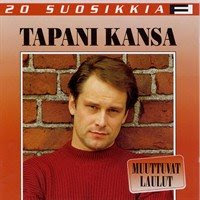.jpg) The last post in the 4 X 40 series is for Boom Bang A Bang, often used to describe the sillyness of Eurovision song titles. It became the biggest international hit and also the most covered of all 1969 songs.
The last post in the 4 X 40 series is for Boom Bang A Bang, often used to describe the sillyness of Eurovision song titles. It became the biggest international hit and also the most covered of all 1969 songs.Luvverly Lulu
Everyone loves Lulu. David Bowie loves her, Patsy & Edina do, Take That love her, Maurice loved her and so did the Man With The Golden Gun.
Belting Shout in 1964, U.S. #1 To Sir With Love in 1967 and after Eurovision scoring her biggest hits with David Bowie's The Man Who Sold The World (1974) and Dan Hartmans Relight My Fire (1993, her only U.K. #1 with Take That), Lulu scored two dozens of hits in 5 decades.
The typically Eurovisionary Boom Bang A Bang won a national selection with six songs by Lulu including the brilliant I Can't Go On Living Without You written by Elton John.
Lulu recorded Boom Bang A Bang (Alan Moorhouse/Peter Warne) in English, Spanish, German, French and Italian. A re-recording was released in 1980 on the LP The Very Best of Lulu (WARWICK WW 5097)
Amnesia?
Lulu is a guest on the British 2009 Eurovision selection shows 'Your Country Needs You'. All very lovely of course, but at some point she claimed she had no international hits prior to Boom Bang A Bang. Like Eurovision was her worldwide breakthrough. We know better of course...
Coverversions
Like all U.K. entries from the golden years, Boom Bang A Bang was celebrated with many coverversions. I have collected details on 84 of them, together with Lulu's own versions and some great picture sleeves in the list.
 Eurovision singers that have recorded Boom Bang A Bang are Lisa Del Bo (Belgium 1996), Grethe Ingmann (Denmarks 1963 winner), Gitte Haenning (Germany 1973) and Heidi Brühl (Germany 1963).
Eurovision singers that have recorded Boom Bang A Bang are Lisa Del Bo (Belgium 1996), Grethe Ingmann (Denmarks 1963 winner), Gitte Haenning (Germany 1973) and Heidi Brühl (Germany 1963).The song was covered in at least 18 languages including Czech, Slovak, Icelandic, Hungarian, Romanian and Limburgs.
Boem Benge Beng
Limburgs, Limburgian is spoken in the south-east province of Limburg, Netherlands and Beppie Kraft recorded Mien Hart Sleit Boem Benge Beng in her native tongue. She's a bit of a legend in Limburg and just celebrated her 50th anniversary as an artist with a CD and DVD Beppie Kraft 50 Joar (but no Boom Bang A Bang on that).
Boom Bang A Bang can be found on the CD Zoondagskeend (CDL, 1993)
- Beppie Kraft
And here are some other lovely versions:
From Brasil: Meu Coracão (Portuguese, Brasil) - 7" (Copacabana)
Selmita - Selmita discography
From Denmark: Boom Bang A bang (Danish) - 7" (Metronome B 1717)
Grethe Ingmann
From Iceland: Og þú (Icelandic) - CD Hvítu Mávar, details on original release wanted
Helena Eyjólfsdóttir (also check this post)
From Hungary: Bum, beng e beng (Hungarian) - 7" (Qualiton SP 631)
Szusza Mary
.jpg) Anne Mettes Norwegian version is in this Eurocovers post.
Anne Mettes Norwegian version is in this Eurocovers post.Boom Bang A Bang
Boom Bang A Bang YouTube - Lulu Homepage



.jpg)







.jpg)


.jpg)






